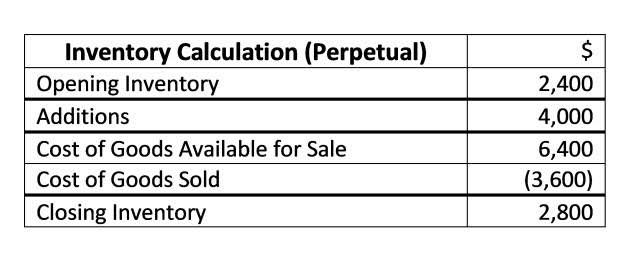
Further you can also file TDS returns, generate Form-16, use our Tax Calculator software, claim HRA, check refund status and generate rent receipts for Income Tax Filing. If you enjoy organization and numbers and have experience with bookkeeping, starting your own business offering this service might be a smart career choice. There are dozens and dozens of bookkeeping options available and the choices may seem overwhelming. We’ve analyzed and rated the adjusting entries best online bookkeeping services to help you make the best decision when choosing the right one.

Bookkeeping vs. accounting: What’s the difference?
- Over time, it has become a specialized profession focused on documenting every dollar that enters or leaves a business.
- They need the ability to interpret financial data, provide strategic recommendations, and offer compliance advice.
- Most businesses use an electronic method for their bookkeeping, whether it’s a simple spreadsheet or more advanced, specialized software.
- Bookkeepers work closely with accountants to ensure that the financial statements are prepared in compliance with accounting principles and regulations.
- As such, it’s important to know whether you need a bookkeeper or an accountant to keep track of your affairs.
As the business evolves, there is a growing need for financial analysis and planning. Accountants provide valuable insights by analyzing financial data, identifying trends, and forecasting future performance. They assist in making informed decisions about budgeting, pricing, expansion, and investment strategies. Financial regulations and reporting requirements can be complex and time-sensitive.

QuickBooks
- This can lead to inaccurate financial reporting and complicate tax preparation.
- Accountants turn the information organized by bookkeepers into business strategies whereas bookkeepers gather and organize the information accountants need to enhance a business plan.
- This page is for informational purposes only and is not financial or legal advice nor an endorsement of any third-party products or services.
- While bookkeepers and accountants share common goals, they support your business in different stages of the financial cycle.
- But keeping accurate books and understanding what the numbers mean can spell the difference between business success and failure.
Another common misconception is that they are only necessary for large businesses. Small business owners might believe that they can manage without these practices or that they are only relevant for tax purposes. However, regardless of the size of the business, maintaining accurate financial records is essential for tracking income, expenses, and profitability. By addressing these challenges, small businesses can enhance their financial management capabilities, make bookkeeping services informed decisions, and achieve long-term success.
- With automated data entry and transaction categorization, the time required for manual record-keeping has been significantly reduced.
- Bookkeeping tasks provide the records necessary to understand a business’s finances as well as recognize any monetary issues that may need to be addressed.
- While bookkeepers manage the records, accountants interpret the information to support decision-making and long-term financial strategy.
- Let us help you navigate the complexities of financial management so you can focus on growing your business with confidence.
- This lack of knowledge can lead to errors in recording transactions, incorrect classification of expenses, and inadequate financial reporting.
- Based on this information, accountants work with bookkeepers to develop realistic budgets, set financial goals, and allocate resources effectively.
How much does a bookkeeper charge?

Bookkeepers record and organize all transactions, making it easier to track the financial health of your business. Legal E-Billing If you struggle with keeping things in order, a bookkeeper can step in and manage this for you. Hiring a bookkeeper, accountant, or both may be worth it to ensure your business’s financial success, depending on your business size, growth, and your comfort working with numbers. Even though it will cost you to hire someone else to manage your books or file your taxes, you may also discover more savings by using a professional. A trained accountant can help you take advantage of deductions you didn’t know about. A professional bookkeeper can help you find more time to take care of other business tasks.

- Accountants help with budgeting and financial forecasting, providing insights into your business’s future performance and helping you make informed financial decisions.
- A QuickBooks Live bookkeeper can help ensure that your business’s books close every month, and you’re primed for tax season.
- These software applications have automated most of the routine job functions such as processes that happen on repeat and minimized human error all while having real-time financial updates.
- By accurately recording and documenting financial transactions, bookkeeping provides the evidence and documentation required for audits.
Unlike accountants, who interpret financial data and manage complex tax matters, bookkeepers focus on the day-to-day recording of a business’s financial activities, providing clarity and transparency. Bookkeeping is the process of maintaining and recording all financial transactions in the original books of entry of a business. The bookkeeping process involves summarising and organising all the company’s financial transactions chronologically in a systematic manner. Many businesses opt to outsource these services to ensure they’re handled by professionals with the right expertise.

